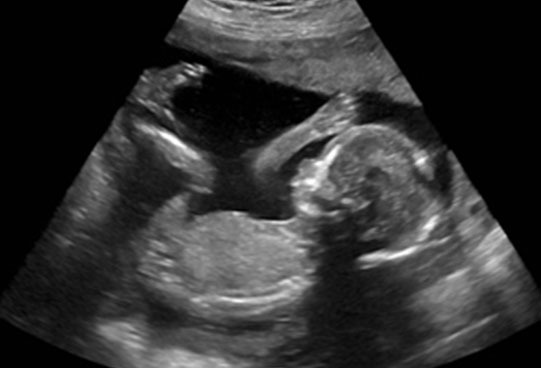
A nuchal translucency ultrasound (commonly called a “nuchal scan” or “NT scan”) is an ultrasound performed between 11.5 and 13 weeks 6 days gestation. It is usually part of an assessment called combined first trimester screening.
Combined first trimester screening assesses the risk for your baby having certain chromosomal abnormalities (trisomy 13, 18 and 21). This testing combines the nuchal translucency ultrasound with specific blood tests. Nuchal translucency ultrasound alone can also provide this risk assessment, but it is not as accurate as combined first trimester screening.
Combined first trimester screening is a non-invasive way of assessing your risk, which means it does not involve putting needles into the placenta or amniotic sac, as happens with CVS and amniocentesis.
Combined first trimester screening is a “screening” test only.
This means that combined first trimester screening simply tells us if your risk is low or high.
For example, it tells us whether your baby has a low risk of having trisomy 13, 18 or 21, or whether your baby has a high risk of having trisomy 13, 18 or 21. This test gives us an indication of whether we should worry about your baby based on these results.
Combined first trimester screening does not give a 100% answer.
This means that combined first trimester screening will not give us a definitive answer.
For example, this test will not tell us “no, the baby definitely does not have trisomy 13, 18 or 21” and, this test will not tell us “yes, your baby definitely has trisomy 13, 18 or 21”.